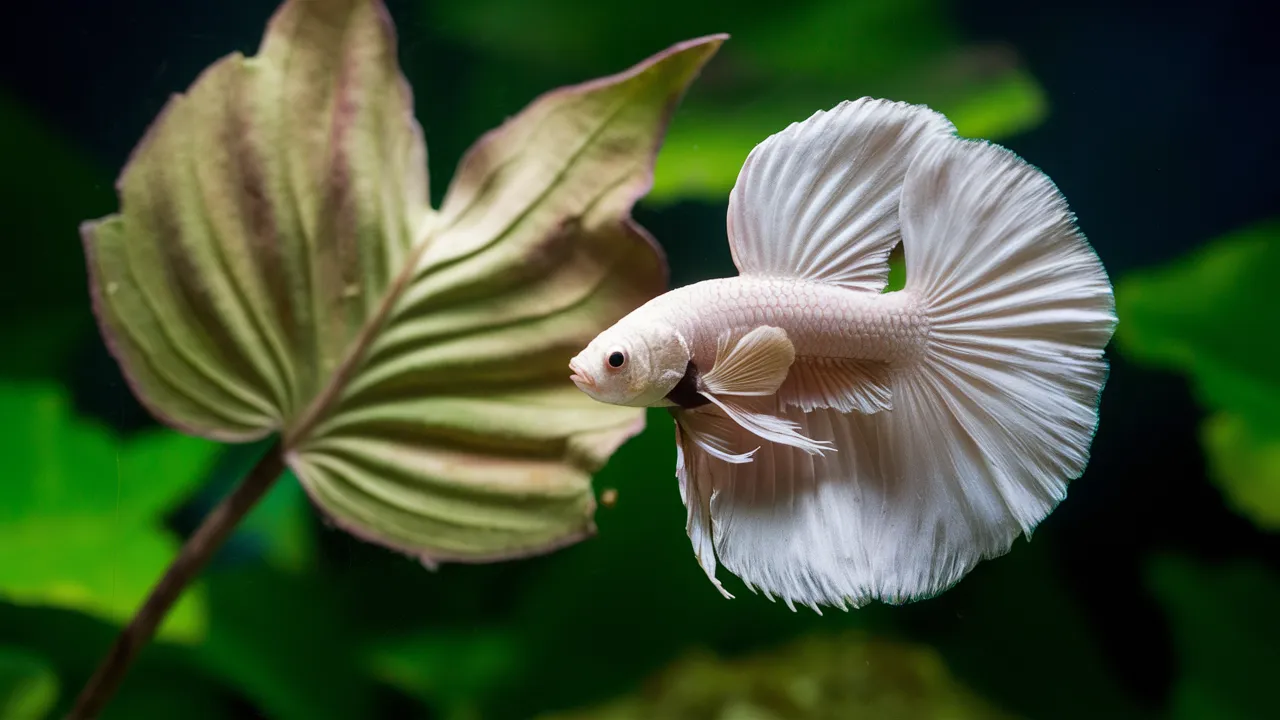Betta fish, also known as Siamese fighting fish, are a popular choice among aquarium enthusiasts for their vibrant colors, unique personalities, and relatively easy care requirements. These captivating creatures have captured the hearts of many hobbyists, but one of the most common questions surrounding them is: “How long do betta fish live?”
Understanding the lifespan of betta fish is crucial for providing them with the best possible care and ensuring their well-being. In this comprehensive guide, Betta Fish Tips will delve into the factors that influence the longevity of these magnificent aquatic creatures, offering insights and practical tips to help you enjoy their company for years to come.

What Is Betta Fish Lifespan?
The typical lifespan of a healthy betta fish can range from 2 to 5 years, with some exceptional individuals living up to 7 years in ideal conditions. However, it’s important to note that the actual lifespan of a betta fish can vary depending on several factors, including:
Diet and Nutrition
A well-balanced diet rich in high-quality protein, vitamins, and minerals is essential for betta fish to thrive. Feeding a varied diet of betta-specific pellets, freeze-dried or frozen foods, and occasional live prey can help support their overall health and longevity.
Water Quality
Maintaining optimal water parameters, such as appropriate pH levels, temperature, and ammonia/nitrite/nitrate levels, is crucial for betta fish. Proper filtration, regular water changes, and vigilant monitoring of water quality can significantly contribute to their lifespan.
Tank Size and Environment
Betta fish require adequate swimming space and enrichment to feel comfortable and content. A tank size of at least 2.5 gallons, with appropriate hiding spots and plants, can help minimize stress and promote longevity.
Genetics and Breeding
Betta fish bred for specific traits, such as vibrant colors or exaggerated fins, may have a slightly shorter lifespan compared to their naturally occurring counterparts. Responsible breeding practices can help preserve the overall health and longevity of betta fish.
Stress and Disease
Betta fish are sensitive to environmental stressors, including overcrowding, poor water quality, and lack of hiding spots. Minimizing stress and promptly addressing any health issues can greatly improve their chances of living a long and healthy life.
Factors that Influence Betta Fish Lifespan
Diet and Nutrition
As mentioned earlier, a well-balanced diet is crucial for betta fish longevity. Feeding a variety of high-quality commercial betta pellets, freeze-dried or frozen foods (such as brine shrimp, bloodworms, or daphnia), and occasional live prey can provide the necessary nutrients for their optimal health.
Water Quality and Tank Maintenance
Maintaining excellent water quality is one of the most critical factors in ensuring a betta fish’s longevity. Regular water changes, using a high-quality filter, and closely monitoring water parameters like pH, temperature, and ammonia/nitrite/nitrate levels are essential.
Tank Size and Enrichment
Betta fish require a minimum tank size of 2.5 gallons, but larger tanks (5 gallons or more) are recommended for their overall well-being. Providing hiding spots, live plants, and other forms of enrichment can help reduce stress and promote a longer lifespan.
Genetics and Breeding
Betta fish bred for specific traits, such as vibrant colors or exaggerated fins, may have a slightly shorter lifespan compared to their naturally occurring counterparts. Responsible breeding practices that prioritize the overall health and longevity of the fish can help mitigate this issue.
Stress and Disease
Betta fish are sensitive to environmental stressors, and minimizing these can significantly impact their lifespan. Providing an appropriate tank size, maintaining water quality, and avoiding overcrowding or sudden changes in the environment can help reduce stress and prevent the onset of diseases.
Caring for Betta Fish to Maximize Lifespan
To ensure your betta fish live a long and healthy life, follow these essential care tips:
- Provide a suitable tank size (minimum 2.5 gallons, but larger is better).
- Maintain excellent water quality through regular water changes and effective filtration.
- Feed a varied, high-quality diet that includes commercial betta pellets, freeze-dried or frozen foods, and occasional live prey.
- Ensure the tank has appropriate hiding spots, plants, and other forms of enrichment to reduce stress.
- Monitor your betta fish for signs of disease and address any health issues promptly.
- Avoid stressful situations, such as overcrowding or sudden changes in the environment.
- Research and select betta fish from reputable breeders who prioritize the overall health and longevity of the fish.
Conclution
By following these guidelines and providing your betta fish with the care and attention they deserve, you can help them thrive and enjoy their company for many years to come.

Bài viết liên quan
How Old Do Betta Fish Live?
Betta fish, also known as Siamese fighting fish, are a popular choice for aquarium enthusiasts [...]
Jul
How To Remove Fish Tank Smell
Maintaining a healthy and odor-free fish tank can be a challenge, especially for those new [...]
Jul
How Long Can A Betta Fish Live Without A Filter?
As a responsible betta fish owner, ensuring your pet’s wellbeing is of utmost importance. One [...]
Jul